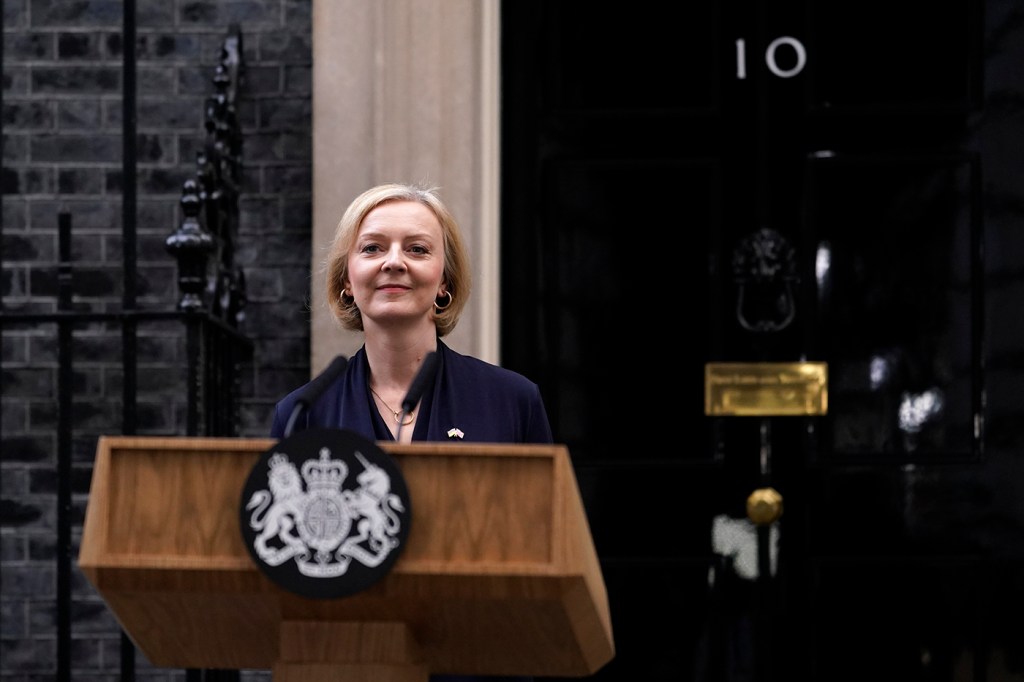After Liz Truss’ resignation, where does the UK go from here?

Once a diplomatic, economic and global security powerhouse, the U.K.’s fall from its once-exalted position on the international stage continued apace after its prime minister stepped down on Thursday.
Liz Truss’ resignation marks the second change in administration in 2022 alone; she’s also U.K’s fourth head-of-government to resign since David Cameron did so in the wake of the country’s historic vote to leave the European Union in 2016.
Sara Raimondi, assistant professor of politics and international relations at Northeastern’s London campus, described Truss’ resignation in stark terms. The U.K. is “unraveling,” she says, the consequences of what she views as a larger global transition away from “liberal international and institutionalism” toward a “multipolarity of regional powers.”
With that shift, Raimondi hinted at the possibility that the great post-war European power—a “key player” in the international liberal order since the end of the Cold War—may not be able to steady its ship for some time.
There is “no question that Britain has witnessed its global role undergoing a reorientation, if not a decline,” she says.
Truss, who was in office for less than six weeks, was forced to reckon with fallout in the financial markets after unveiling an ambitious tax plan that would benefit Britain’s wealthiest amid heightened energy insecurity and a worsening cost-of-living crisis. After sacking her finance minister Kwasi Kwarteng last week, commentators speculated that it would only be a matter of days before Truss herself faced the music.
Raimondi argues that Britain’s exit from the EU, coupled with its embrace of isolationist policies, has significantly hampered the U.K’s ability to maintain a foothold internationally during this period of global turmoil. Such turmoil is partly a result of the emergence of geopolitical adversaries, such as Russia and China; Russia’s protracted war in Ukraine; as well as the rise of right-wing populism in parts of Europe and the U.S.
As a consequence of its ever-diminishing influence, “any attempt” on the part of the British government “at exercising its leadership seems … highly circumstantial, such as in the current effort of leading in the Western action to counter the Russian invasion of Ukraine, and arguably redirects attention away from internal domestic problems,” Raimondi says.
After a tumultuous summer that began with Boris Johnson’s resignation, the death of Queen Elizabeth II and culminating in the resignation of Truss, the U.K. is now projecting an image of instability, says Mai’a Cross, the Edward W. Brooke Professor of Political Science and International Affairs at Northeastern.
Even amid such political disorder, Cross says the future of the U.K. is not lost to its present instability. “Absolutely there are things it can do” to rehab its image, she says.
Cross says the U.K.’s political parties need to start engaging the public in discussions about the country’s future relations with the EU, sort out its trade relationship with Ireland and consider strategies to reenter the single market.
The U.K’s domestic problems “can’t be decoupled from its economic situation, which has been marred by a 4% contraction of [gross domestic product] since Brexit,” Cross says. “That really doesn’t look good. Since its exalted leadership status in the EU, the U.K. is now really quite sidelined internationally and unsure of itself as a country.”
All of this political turmoil is good for Russia and China, Cross says, which seize on narratives of the decline of Western democracy to push their own propaganda.
“Over the past few years, there has been a clear rise in populism in the West, and some of that can be attributed to the ways that Russia and China have used social media to sway publics towards more extreme versions of populism,” she says.
The next Conservative Party leader of the U.K. is expected to be announced on Friday, Oct. 28, CNN reports.
For media inquiries, please contact media@northeastern.edu.






